The film that won an Oscar despite a BBC ban
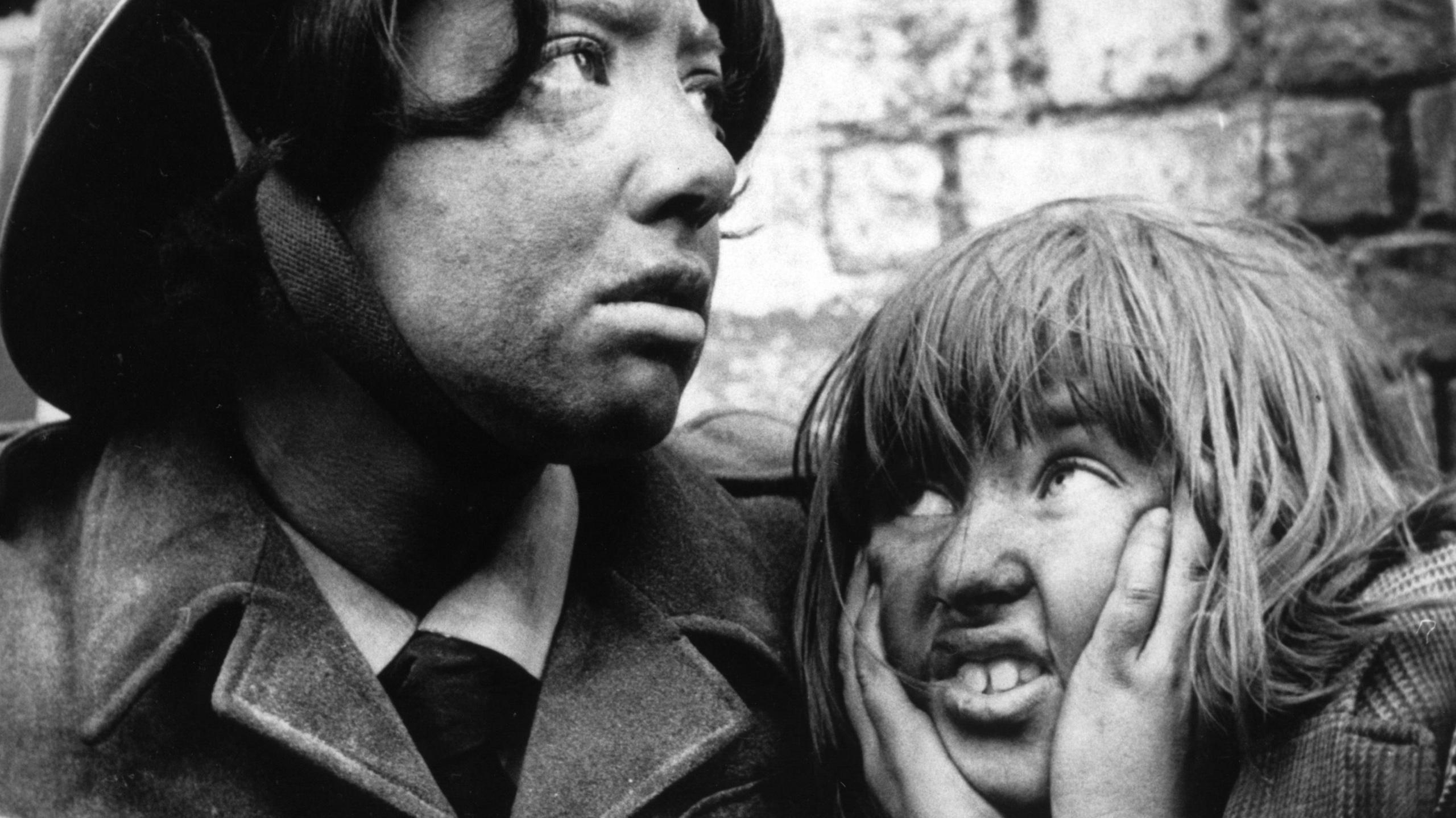
Director Peter Watkins preferred to use amateur actors in his films
- Published
A 1965 film depicting the impact of a nuclear strike on Britain, banned because it was "too horrifying", was finally aired 40 years ago before going on to win an Oscar.
Filmmaker Peter Watkins recruited about 350 amateur actors from Kent to make the BBC documentary drama The War Game, but the broadcaster initially refused to air it.
The film won an Oscar in 1967 before the BBC eventually screened it on 31 July, 1985.
"I quickly realised I was in the presence of a genius," said Michael Banks, an extra in the film. "Peter Watkins was an innovator."
The War Game presents a hypothetical future where war breaks out and a nuclear missile airbursts over Kent, overwhelming hospitals and creating food shortages.
The BBC's then head of documentaries, Huw Wheldon, said the "political hot potato" was approved and he was impressed with the result.
Secret Kent: Dover's starring role in the film they banned
However, Mr Wheldon had an issue with a statement in the film from a bishop who said "we must learn to love the bomb".
He also did not like a scene where a policeman was seen "mercy killing" dying people.
"I simply did not believe that anybody would get policemen to do it," the former head of documentaries explained.
Mr Wheldon labelled it an "anti-police statement" and said when he flagged his concerns to director Peter Watkins he went "through the roof".
Much of the filming took place at Grand Shaft Barracks in Dover, an army base that was in the process of being demolished at the time.
Phil Eyden, whose late mother Christine was in the film, said mattresses were set out for extras to "hurl themselves onto" after they were hit with a blast of air.
Mr Eyden, who maintains the Dover site as a volunteer, added that some extras acting as casualties "actually had Rice Krispies glued to their faces and then sprayed a dark colour to simulate burn injuries".
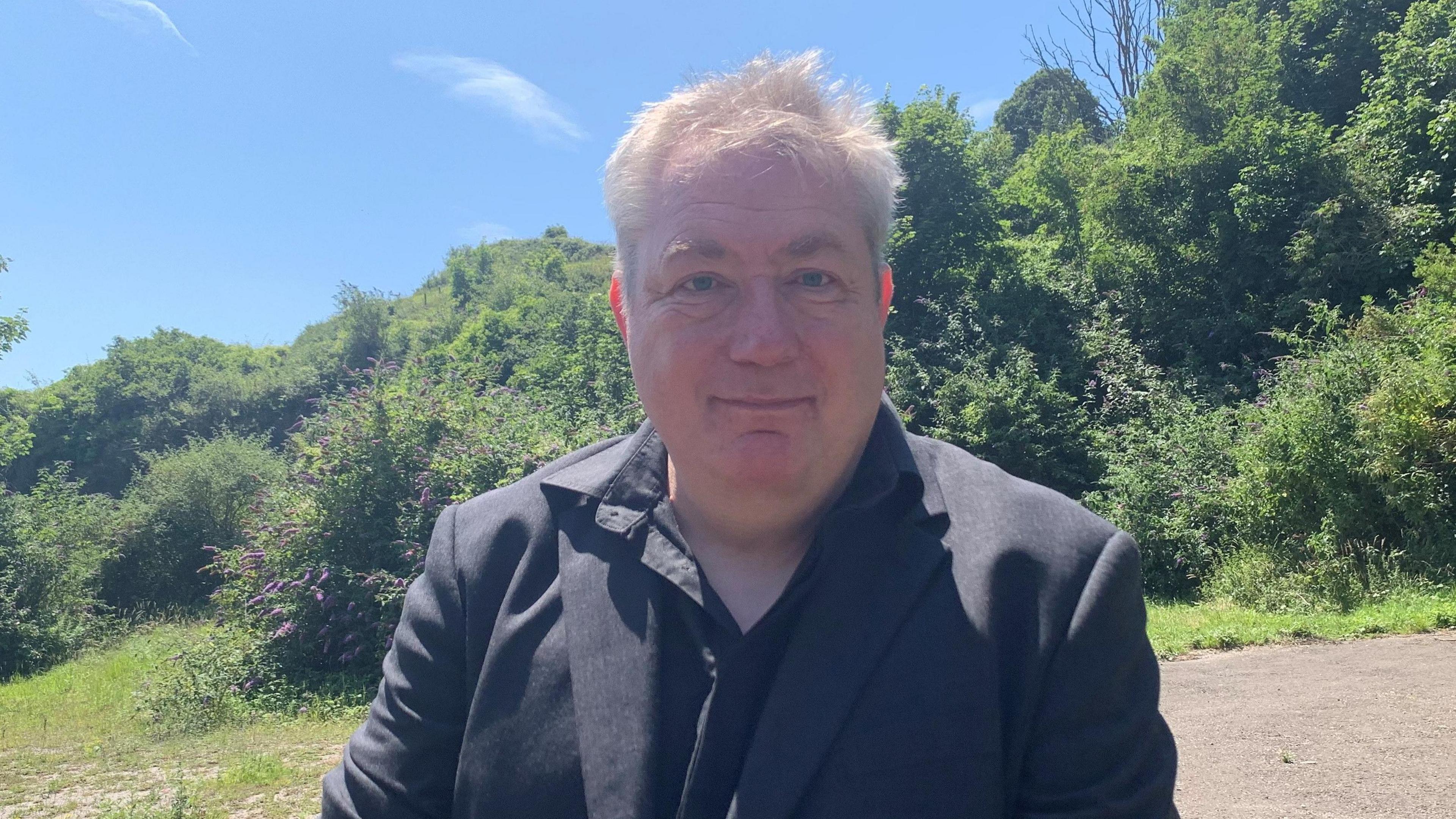
Phil Eyden looks after the Grand Shaft site as a volunteer with the Western Heights Preservation Society
Mr Banks, a retired theatre maker from Dover, said working on the film influenced his arts career.
"I approached it as any 17-year-old schoolboy would, as a chance to get your hands on weapons," he said.
"By day two, our attitude began to change, because we realised the visceral nature of what was being filmed."
Glynis Greenland, who was in the film, said she was part of a group of women taken off set to "scream on cue in the background" to add to the sense of terror.
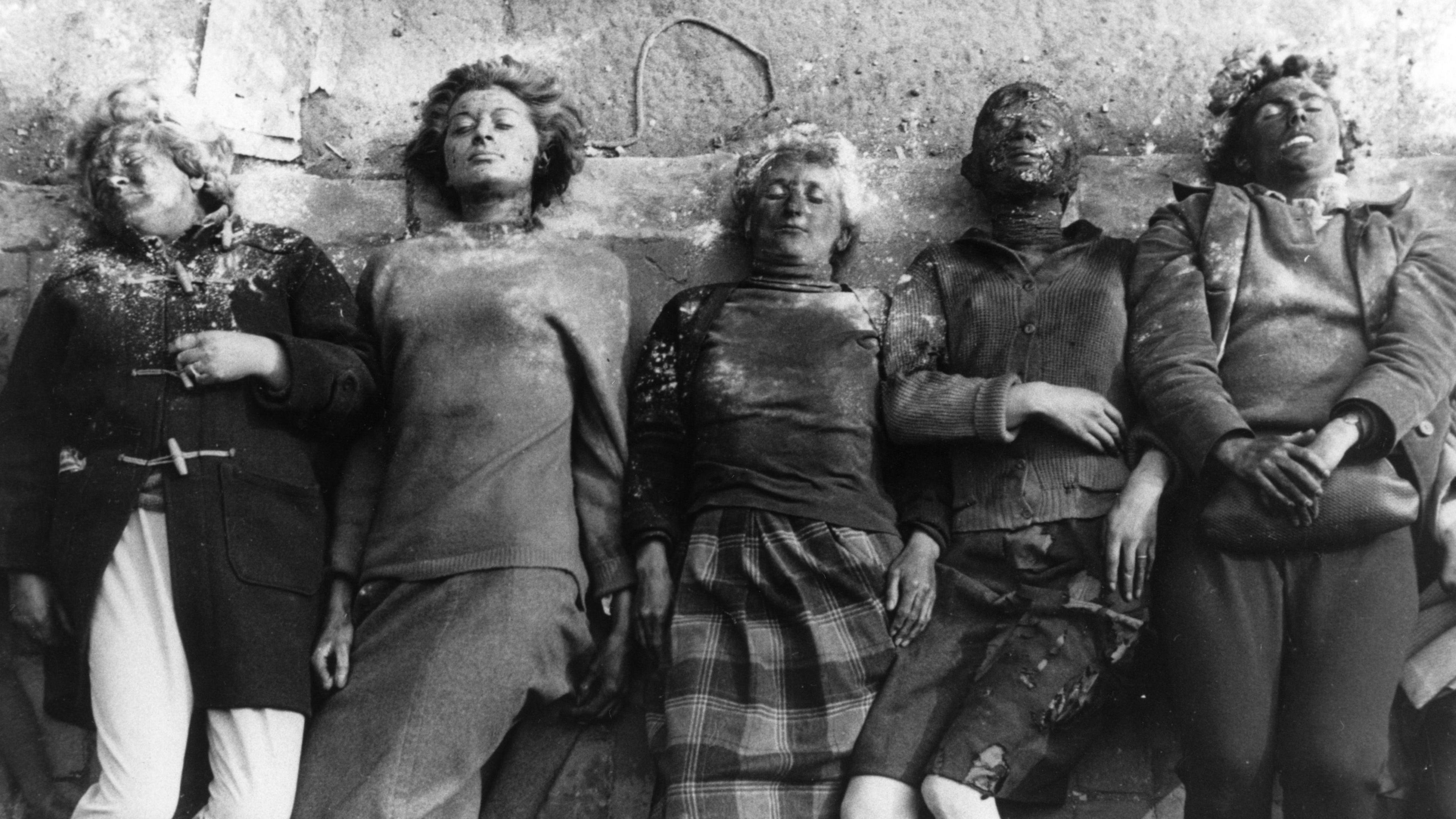
Phil Eyden's late mother Christine (left) played a corpse in the film
She said she did "muck up" one shot as she opened her eyes while pretending to be dead.
"They carried me all the way on this stretcher with my eyes shut and I thought they'd finished so I opened my eyes and the camera was right over me," she explained.
The BBC commissioned the film but later said it was "too horrifying for the medium of broadcast".
Declassified Cabinet Office papers later revealed Harold Wilson's government pressured the corporation to suppress the film.
Lord Norman Brook, the BBC's chairman at the time and former secretary to the cabinet, wrote to the serving cabinet secretary, saying: "I have seen the film, and I can say it has been produced with considerable restraint.
"But, the subject is necessarily alarming and the showing of the film might well have a significant effect on public attitudes to the policy of the nuclear deterrent.
"It seems to me the government should have an opportunity of expressing a view about this."
Speaking 17 years after the film was made, the BBC Director General in 1965 Hugh Carleton Greene said: "The decision not to show it was shared between Lord Norman Brook and myself.
"The decision was not made against my wish - I was more shocked by the programme than he was.
"The basis of the decision was not a political one. I could not face the responsibility of putting a programme on air that was so shocking."
'Awkward issues' for government
Prof John Cook, from Glasgow Caledonian University, said: "It wasn't so much that it was horrific compared to other scenes of violence on television.
"It was more the fact that it raised all sorts of awkward issues around the adequacy of Britain's civil defence."
Prof Cook said The War Game still had a powerful effect on audiences, as its themes of war and destruction were still relevant.
"I show it to schoolchildren today and they still are wowed by it," he said.
Secret Kent
Explore more fascinating stories from Kent
Listen and subscribe for the episode of Secret Kent
Follow BBC Kent on Facebook, external, on X, external, and on Instagram, external. Send your story ideas to southeasttoday@bbc.co.uk, external or WhatsApp us on 08081 002250.
Related topics
- Published15 June
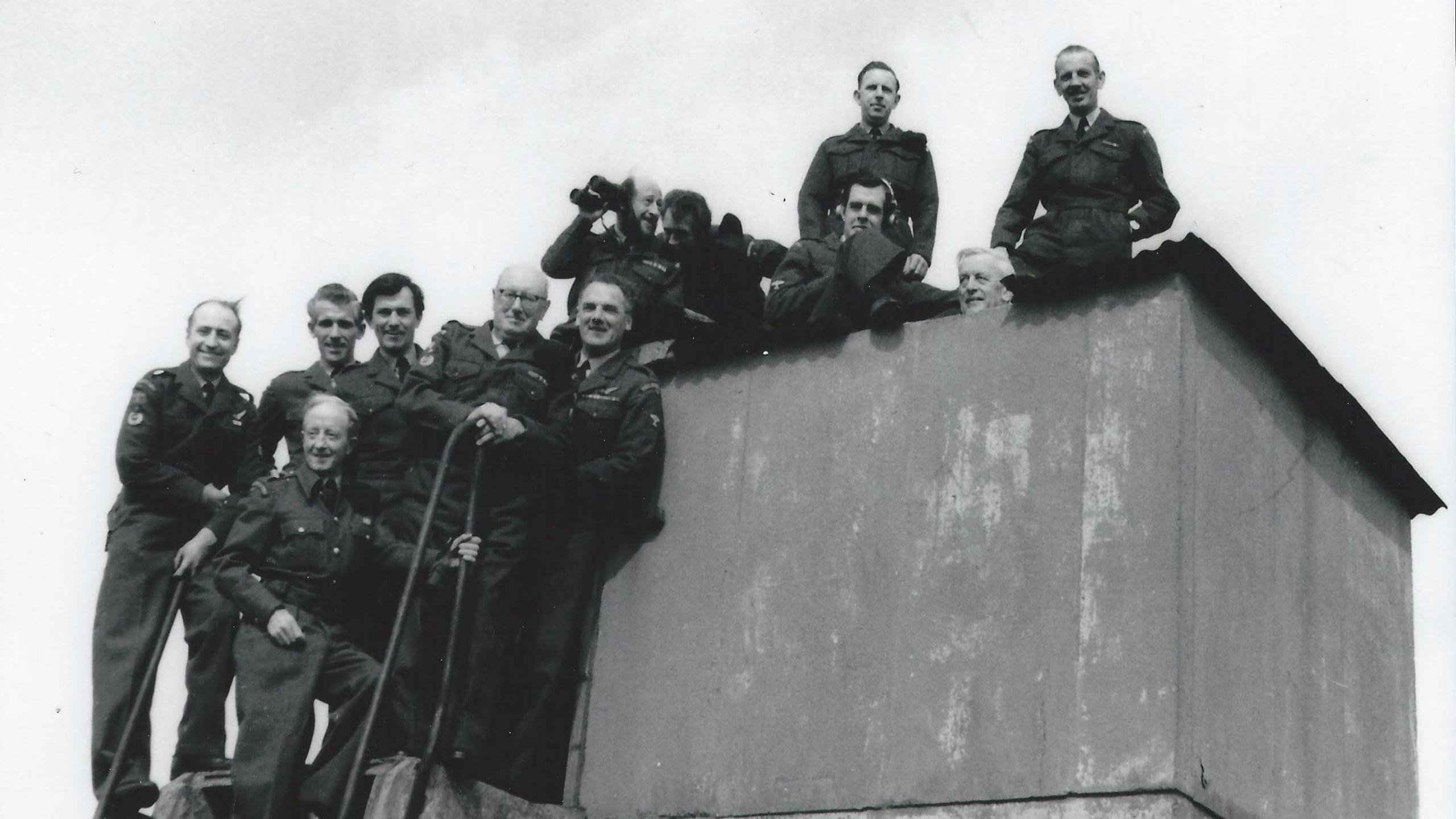
- Published3 July
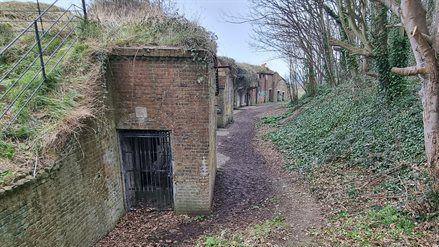
- Attribution